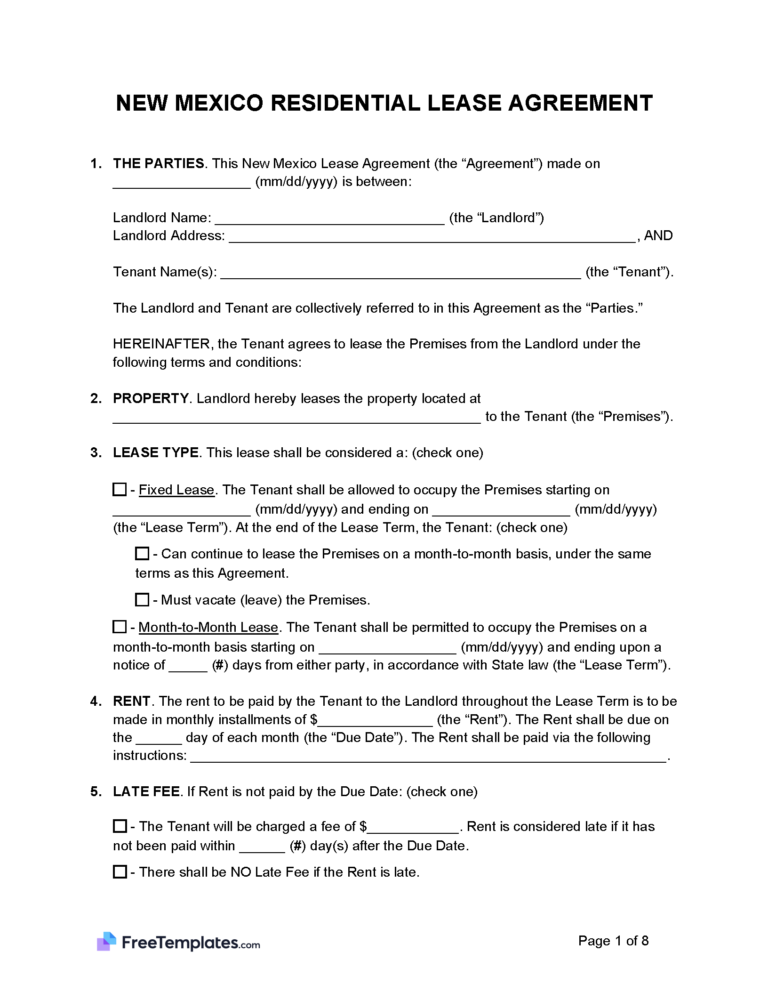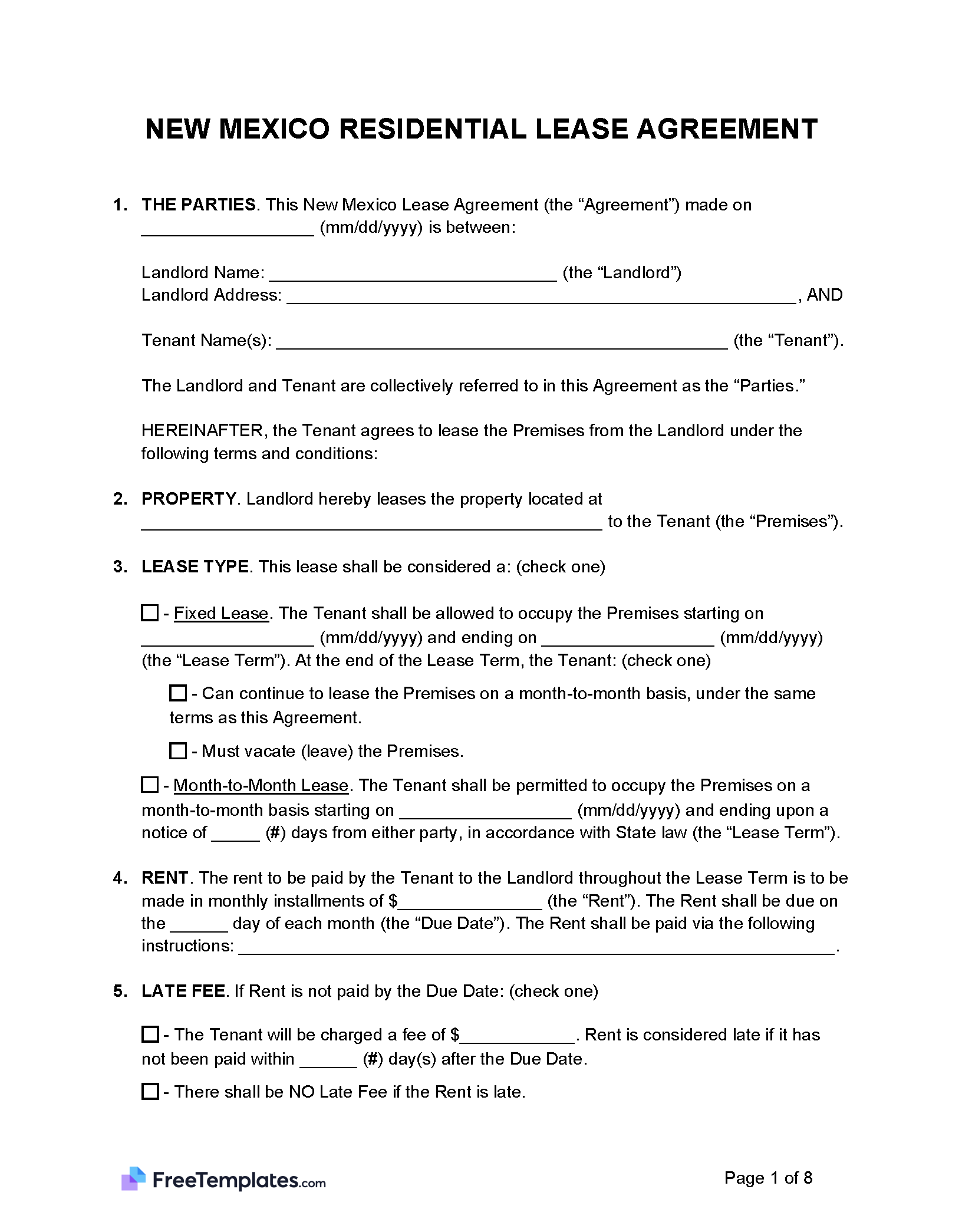By Type (6)
| Standard Lease Agreement – The most common lease for a residential property that usually lasts 12 months. |
| Commercial Lease Agreement – This is used when a business rents a space for retail, industrial, or office use. |
| Month-to-Month Lease Agreement – This contract does not have an end date but may end with a 30-day notice by the tenant or landlord. |
| Rent-to-Own Agreement – This is a standard lease under which the renter may purchase the property at an agreed-upon price after the lease ends. |
| Roommate Agreement – Two individuals inhabiting the same rental space may enter an agreement of shared duties and responsibilities. |
| Sublease Agreement – With the landlord’s approval, the tenant may re-rent out their space to another individual. |
Disclosures (2)
Lead-Based Paint Disclosure – Federal law requires the landlord to disclose the possibility of toxic lead paint in any building built before 1978.
Landlord’s Contact Details – In New Mexico, the landlord’s or property manager’s information must be available to the renter. (§ 47-8-19(A))
Security Deposit
Maximum Amount – There is no maximum amount a landlord may charge for a security deposit in New Mexico unless the lease duration is less than 12 months, during which the landlord may only charge up to 1 month’s rent. (§ 47-8-18(A))
Returning to Tenant – The landlord must return the full security deposit within 30 days of the lease’s end. (§ 47-8-18(A)(1))
- Itemized List – An itemized list is required if the landlord deducts the security deposit money to cover the costs for repairs or damages left by the tenants. (§ 47-8-18(C))
Collecting Interest – If a landlord requests more than 1 month’s rent for a security deposit, they are liable to collect interest on the deposit equivalent to the passbook interest on a savings account. (§ 47-8-18(A)(1))
Landlord Access
General Access – A 24-hour notice is required if a landlord needs to access the property for maintenance or repairs. (§ 47-8-24(A))
Emergency Access – No notice must be given to a tenant if a landlord needs to enter the unit for an emergency. (§ 47-8-24(B))
Paying Rent
Grace Period – In New Mexico, there is no grace period for late payment, so if a renter does not pay on time, they may be served a 3-day notice to pay or quit. (§ 47-8-15(B))
Maximum Late Fee – In the state of New Mexico, a landlord may charge a maximum late fee of 10% of the monthly rent. (§ 47-8-15(D))
Returned Checks (NSF) – If a tenant’s rent check bounces, the landlord may charge a $20 fee. (§ 14.5.5.15(A))
Withholding Rent – If the unit’s condition is not habitable, the renter may withhold 100% of the rent due until the unit is fixed. If the unit needs repairs and the landlord does not address the issues, the renter may withhold up to 1/3 of the month’s rent. (§ 47-8-27.2(A))
Reasons for Eviction (4)
Non-Payment of Rent – If tenants fail to pay the rent, they may be served a 3-day notice to quit or pay. (§ 47-8-33(D))
Non-Compliance – If tenants violate the lease agreement terms, they may be served a 7-day notice to quit or comply. (§ 47-8-33(A-C))
Lockouts – A court order is required to lock a tenant out of their rental unit, and the landlord is prohibited from doing so without the order. (§ 47-8-36(A))
Leaving Before the End Date – The tenant is responsible for paying rent until the lease ends. If the renter abandons the property, the landlord has the right to re-rent the unit (§ 47-8-34) and must make a reasonable effort to do so. (§ 47-8-6)

